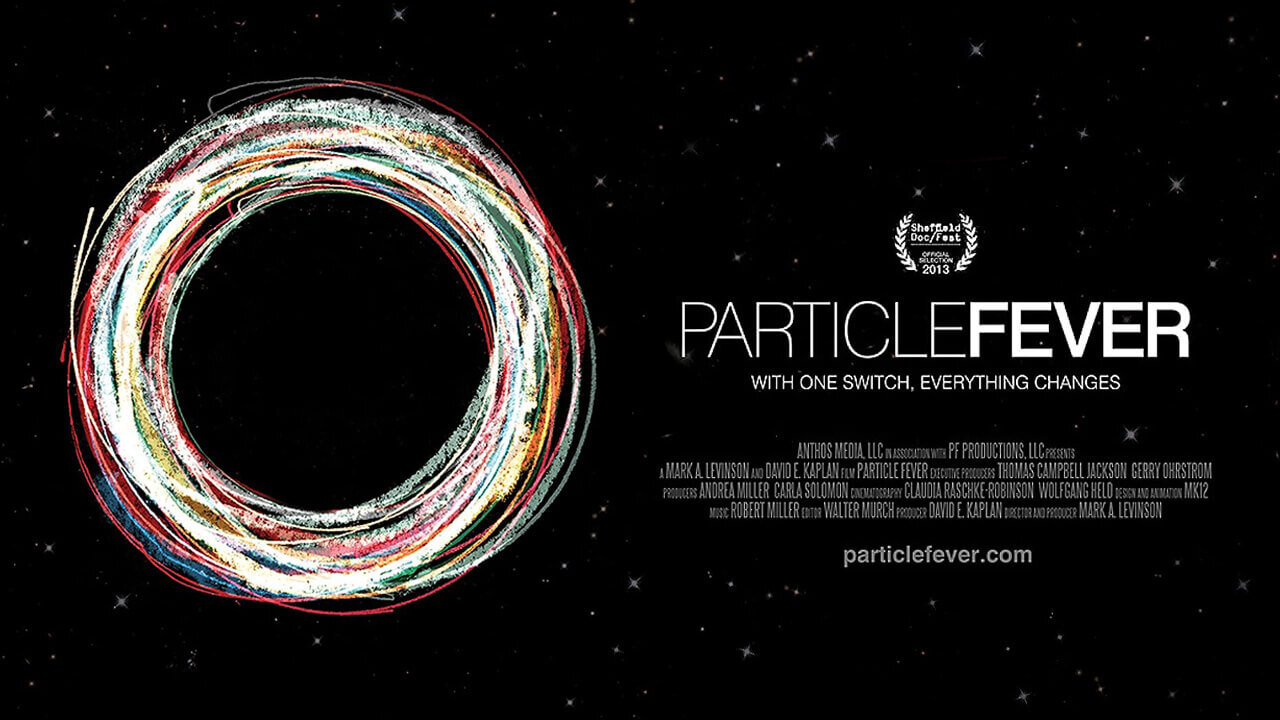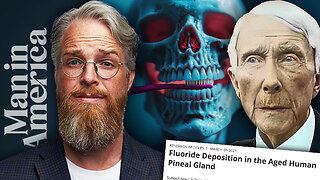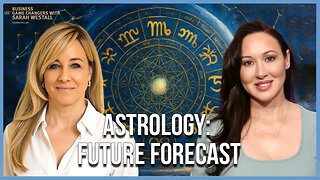Premium Only Content

Particle Fever (2013) - Documentary
Director Mark Levinson's documentary focuses on the most elaborate and costly science experiment ever conducted.
A particularly timely work given the Nobel Prizes for Physics just announced for two of its central figures, Particle Fever succeeds on every level, but none more important than in making the normally intimidating and arcane world of genius-level physics at least conceptually comprehensible and even friendly to the lay viewer. This unexpected look at the long run-up to and successful completion of the most elaborate and costly science experiment ever conducted — the use of the Large Hadron Collider to attempt to find the Higgs boson — is not only fascinating, but also humanizes the field in a way that will inspire practitioners and provoke the curiosity of non-specialists. Set for theatrical release next March, this top-notch account of a major moment in the advance of human knowledge will have a long, full life in all documentary-friendly arenas worldwide.
It’s crucial for starters that the subject is second nature to the filmmakers: director Mark Levinson earned a doctoral degree in particle physics from Berkeley before veering into film, and producer David Kaplan, a professor of theoretical particle physics at Johns Hopkins, has also been active on History Channel and National Geographic science programs. They’re able to simplify and synthesize without dumbing down the material and put non-science-oriented viewers at ease by drawing a smart parallel between science and art: Both endeavors ultimately represent attempts to explain our existence and our place in the universe.
It also doesn’t hurt that both the metaphysical and the (literally) physical backdrop for the film is enormous. The Large Hadron Collider (LHC) is the biggest machine ever built. Buried underground in Switzerland, it resembles but dwarfs any set ever built for a James Bond film, measuring seven stories tall and consisting of a 17-mile ring through which protons, powered by seven-ton super-conducting magnetos, will be sent to collide with each other at a speed aimed to reproduce conditions such as those just after the Big Bang.
The Atlas Experiment, which was initiated in the 1980s, involves 10,000 people from 100 countries and the use of 100,000 computers to deal with all the data. An even bigger such machine was started in the United States but was canceled by Congress after a few years because there were no specific military or commercial applications for the experiment. Trying to convey the magnitude of the project, participants compare it to the building of the pyramids or the moon landings, only bigger.
And what is its raison d’être? This is described in many ways: To try to understand the basic laws of nature, to discover the key particle that holds everything together (which is what the Higgs boson describes), to identify particles scientists know are out there but haven’t been seen and, in the simplest terms, to learn which group of theorists is correct — those who believe in the “super-symmetry” of one universe or the adherents of an ever-expanding “multi-verse” based on randomness and chaos.
The LHC will be the vehicle to take physicists to and, they hope, beyond the outer edge of the scientific frontier as currently acknowledged; everyone in the field is keyed up by the certainty that a new threshold is about to be breached. “It’s going to change everything,” Kaplan predicts.
With foresight, Kaplan and Levinson began production in 2008 and, while the center of action remains the European Center for Nuclear Research (CERN) in Switzerland, the net is cast wide to encompass the perspectives of scientists as they gather there, as well as those following events with computer links elsewhere. The project leader is an Italian woman, Fabiola Gianotti; an American woman, Monica Dunford, provides an emotionally excitable take; a veteran Greek physicist, Savas Dimopoulos, is concerned that he’s too old to be able to take part in what he’s sure will be the exciting next phase of research; while Nima Arkani-Hamed, whose family escaped from revolutionary Iran after 1979, has a great deal riding on the experiment, about which he says, “The hype is approximately accurate.”
Official Website: http://particlefever.com
REVIEW RESOURCE: https://www.hollywoodreporter.com/movies/movie-reviews/particle-fever-film-review-646439/
-
 23:04
23:04
Verified Videos
1 month agoCharlie Kirk’s Death Exposed the Biggest Scam in History
178 -
 LIVE
LIVE
Wendy Bell Radio
4 hours agoThings Will Get Worse Before They Get Better
6,789 watching -
 DVR
DVR
Chad Prather
7 hours agoHow to Get Along With People You Don’t Even Like (Most of the Time)
21.5K13 -
 LIVE
LIVE
LFA TV
15 hours agoLIVE & BREAKING NEWS! | MONDAY 11/3/25
3,644 watching -
 1:30:13
1:30:13
Game On!
13 hours ago $3.53 earnedChiefs Dynasty OVER, New Longest FG RECORD, and Patriots Are Winning The Super Bowl!
8.02K2 -
 LIVE
LIVE
The Bubba Army
3 days agoIS AMERICA OVER TRUMP? - Bubba the Love Sponge® Show | 11/03/25
1,648 watching -
 48:57
48:57
Man in America
17 hours agoThe Sinister Reason They Put Fluoride in Everything w/ Larry Oberheu
350K93 -
 1:06:56
1:06:56
Sarah Westall
15 hours agoAstrological Predictions, Epstein & Charlie Kirk w/ Kim Iversen
91.6K71 -
 2:06:49
2:06:49
vivafrei
1 day agoEp. 289: Arctic Frost, Boasberg Impeachment, SNAP Funding, Trump - China, Tylenol Sued & MORE!
275K209 -
 2:56:28
2:56:28
IsaiahLCarter
19 hours ago $13.10 earnedThe Tri-State Commission, Election Weekend Edition || APOSTATE RADIO 033 (Guest: Adam B. Coleman)
54.6K8